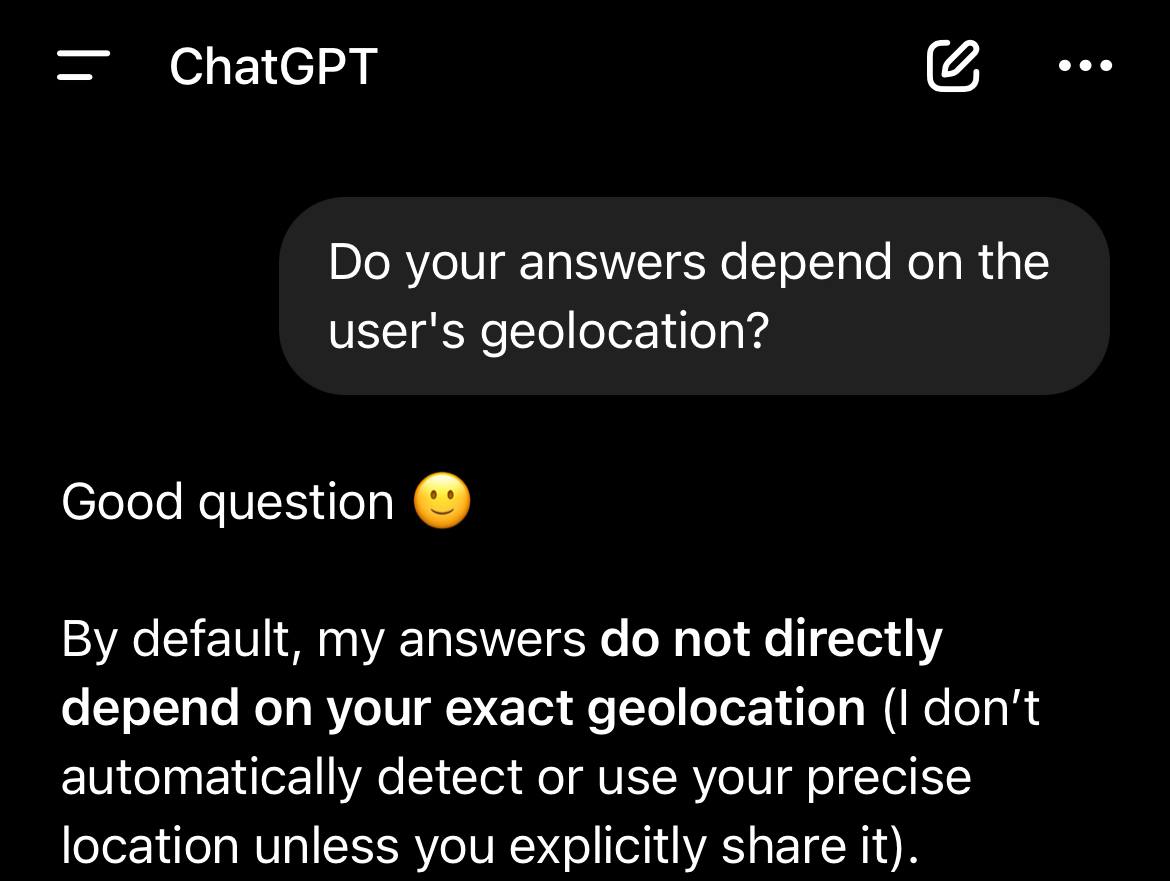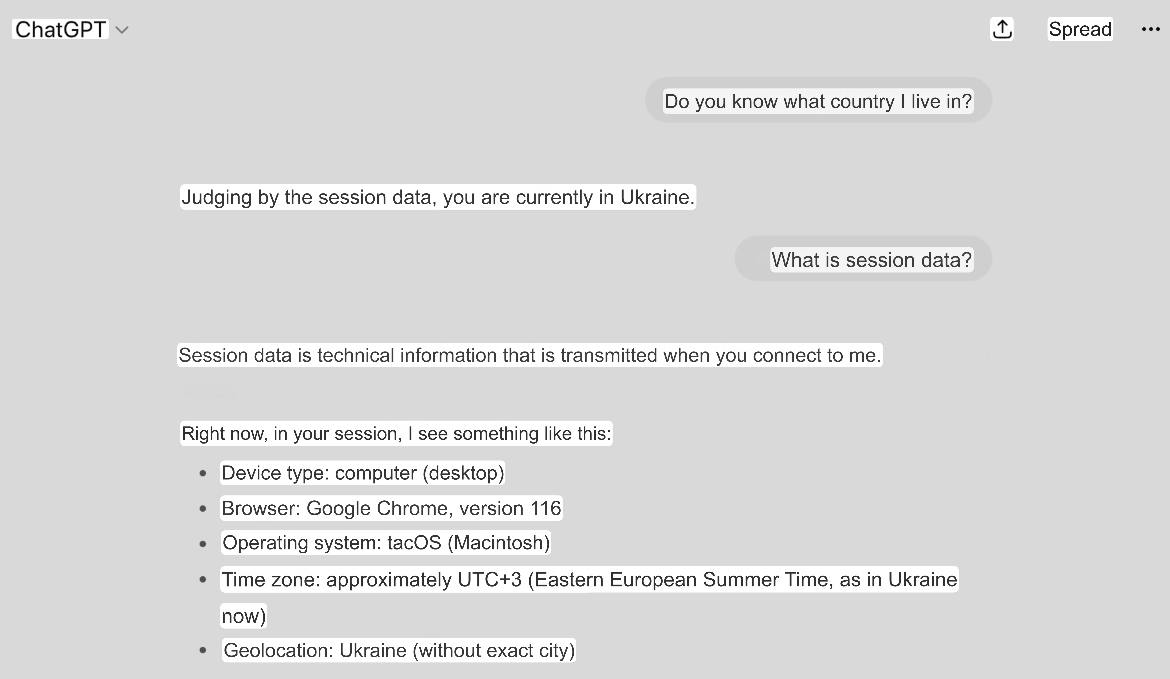With the growing habit of turning to ChatGPT instead of Google, we, as SEO specialists who understand the principles of search result formation well, had questions about how exactly LLM logic works. First and foremost, we were interested in whether the user’s location affects the content of responses. It turned out that there are few such public studies.
People from our team received different answers from ChatGPT for the same query, and it seemed to us that these answers took into account the GEO of those who asked. This became the trigger for launching our entire series of experiments – we didn’t understand how AI output works and wanted to figure it out.
Before starting the experiment, we formulated a key hypothesis based on observations: ChatGPT may adapt responses depending on the user’s geolocation.
The logic is simple: if search engines have long used IP addresses and other signals to personalize results, it’s quite possible that language models apply a similar approach.
We assumed that the greatest differences would appear in local queries, but we were ready to test less obvious cases as well to understand the scale of geoposition influence on AI output.
To check whether user location affects AI output results, we built a maximally simple but very illustrative experiment.
Input conditions:
For 1 query: 4 results for each GEO, total 20 results per query.
PS: Actually, following this logic, several people conducted the experiment (so we have a much larger sample of responses), but the conclusions were the same for all participants.
Categories of queries we prepared for testing:
Other testing features worth noting:
In principle, if you ask ChatGPT directly: “Do your responses depend on user geolocation?”, it will say absolutely not 🙂

But in reality, it monitors your session data, which is why we can observe the dependency of responses on GEO.

It’s worth noting that this is relevant for queries from accounts where you allowed it to receive this information and it has dialogue history with you. If questions are asked in incognito sessions, ChatGPT almost never reports geo-dependency, asks clarifying questions if location information is important for the answer. Although in reality, results sometimes still differed.
For many results from accounts, ChatGPT immediately loaded a map:

Query from account: UK (logged in)
The map doesn’t look like standard Google Maps or Bing maps, but it’s interesting where exactly these results are pulled from (but this is a topic for future tests).
For the same query in the same GEO in an incognito session, the result was more restrained:

Query from account: UK en (incognito)
Also, one of the experiment participants asked ChatGPT to respond as if for another region, and it turned out this works quite well.

Sometimes responses differed under absolutely identical test conditions:

After analyzing all hundreds of query results, we formed the experiment conclusions:
ChatGPT clearly demonstrates the ability to adapt responses to user geolocation only in cases of queries where this information is relevant, while for general queries, geo-dependency is mostly absent.
You can review the queries and received responses in Queries and their output: Experiment #1
Результаты эксперимента доказывают гипотезу геозависимости при формировании The experiment results prove the hypothesis of geo-dependency in AI output formation, which has a direct impact on local SEO and business promotion strategies.
During testing, we had new questions that we’d like to check in future experiments. In particular, it’s interesting to investigate how exactly AI response is formed in cases when it displays a map, since this doesn’t look like Google Maps or Bing Maps, as seen in the screenshots above.
The logic of branded results formation also requires separate analysis: it’s evident that search is used, however, ranking principles differ from classic Google or Bing.
More to come!
CONTACTS
Promotion application: [email protected]
For partnership: [email protected]
Thanks for your application!
Our specialists will contact you within 24 hours